Sports betting has rapidly emerged as one of the most popular (and addictive) forms of gambling nationwide, and there isn’t a time when more opportunities to bet are present than MARCH MADNESS.
Unlike the Super Bowl, which is one and done, the NCAA Tournament spans 67 games over multiple weeks. The excitement of consecutive days filled with countless betting opportunities can easily lead to trouble if responsible gambling practices aren’t prioritized.
Betting on brackets might seem harmless, and for most, it is. However, March Madness isn’t merely a basketball event for cheering on college teams; it’s a huge media spectacle that can exacerbate gambling temptations and be challenging for those with gambling issues.
How Serious is Gambling Addiction?
Gambling addiction is a serious issue with far-reaching consequences. According to the National Council on Problem Gambling, around 2-3% of Americans struggle with gambling problems. However, the impact extends beyond just the individual affected.
Here’s how gambling addiction can negatively impact others:
- Gambling addiction negatively impacts at least six other people.
- Families where a parent has a gambling disorder are more likely to experience domestic violence, including child abuse.
- 15% of those with a gambling disorder commit crimes in a desperate attempt to secure gambling funds.
- 57% of individuals with a gambling problem also struggle with alcoholism or substance use disorder (SUD.)
- Those with problems due to gambling are more likely to have mental health diagnoses such as depression and anxiety and have a high rate of suicidal ideation.
- Someone with a gambling problem is more likely to have a failed business or bankruptcy.
Tips for Responsible March Madness Betting
If you plan to place sports bets during the “madness,” it is vital to use responsible gambling strategies to mitigate the harms of gambling and create social safety nets.
Some responsible gambling strategies include:
1: Reflect on Your Behavior
At TGC, we’re not anti-gambling. We believe that gambling itself isn’t inherently wrong or bad. Instead, it’s about understanding how to engage in it responsibly.
That said, it is crucial to understand that gambling platforms are designed to keep you hooked by triggering your brain’s reward system. Recognize these tactics and assess how they influence your betting habits to maintain control and avoid excessive gambling.
2: Learn the Game
Take time to research and understand the rules and dynamics of the game or betting system you’re engaging in. Being knowledgeable about the bets you’re making can reduce the likelihood of unexpected losses.
3: Approach Gambling with the Expectation of Losses
Understand that gambling involves the possibility of losing money. Approach it with a mindset focused on fun rather than financial gain, which can help maintain a healthy relationship with betting.
4: Gamble For Entertainment Purposes Only
Gambling should not be a source of income. Viewing it as a form of entertainment rather than a means of financial gain is essential. This mindset shift can help prevent the development of problematic gambling behaviors and promote responsible gambling habits.
5: Establish a Betting Budget
Set aside a specific amount of money dedicated to gambling and adhere to this budget. Avoid exceeding your limits to prevent financial strain or impulsive betting decisions.
6: Set a Time Limit
Schedule designated periods for gambling and adhere to these time limits. This helps prevent excessive betting and ensures that you maintain a balanced lifestyle.
7: Don’t Bet on Credit or with Borrowed Money
Use only disposable income for gambling and avoid borrowing money or using credit for betting purposes. This safeguards your financial stability and prevents debt accumulation.
8: Avoid Chasing Losses
Don’t chase losses, and know when to quit. Accept losses as part of the gambling experience and refrain from attempting to recover them through further betting. Recognize when it’s appropriate to stop and take a break.
9: Take Regular Breaks
Step away from gambling regularly and participate in other activities to refresh your mind. This helps prevent obsession and maintains a healthy lifestyle.
10: Maintain Balance
Keep a healthy balance between gambling and other aspects of your life, such as work, family, and hobbies. This prevents gambling from overshadowing your overall well-being.
11: Stay Clear-headed
Refrain from consuming alcohol or drugs while gambling to maintain clarity of thought and make rational betting decisions.
12: Get Help If Needed
If you’re struggling to manage your gambling habits, don’t hesitate to seek support from loved ones or professional services. It’s important to address any concerns early on to prevent further complications.
Where To Get Help With Problem Gambling
If you or someone you know is struggling with gambling, help is available through The Gambling Clinic® in Tennessee. Since 1999, we have been offering an affordable outpatient program to assist individuals in gaining control over their gambling habits, serving clients anywhere in Tennessee.
Our clinic provides outpatient cognitive-behavioral therapy tailored to address thoughts, emotions, and behaviors related to gambling. This therapy approach helps individuals change their perceptions and actions surrounding gambling, leading to improvements in their gambling habits, relationships, and overall emotional well-being. Sessions can be conducted in person at our clinics in Memphis or Johnson City or via telehealth from anywhere in Tennessee.
In addition to therapy, The Gambling Clinic® provides educational resources to raise awareness of gambling harms and promote safe gambling practices. Whether you’re personally struggling with gambling or supporting a friend or family member, our educational materials offer valuable insights derived from thorough research and contribute significantly to our therapy practice.
Don’t hesitate to reach out to The Gambling Clinic® for support and guidance on your journey towards recovery from gambling addiction.






